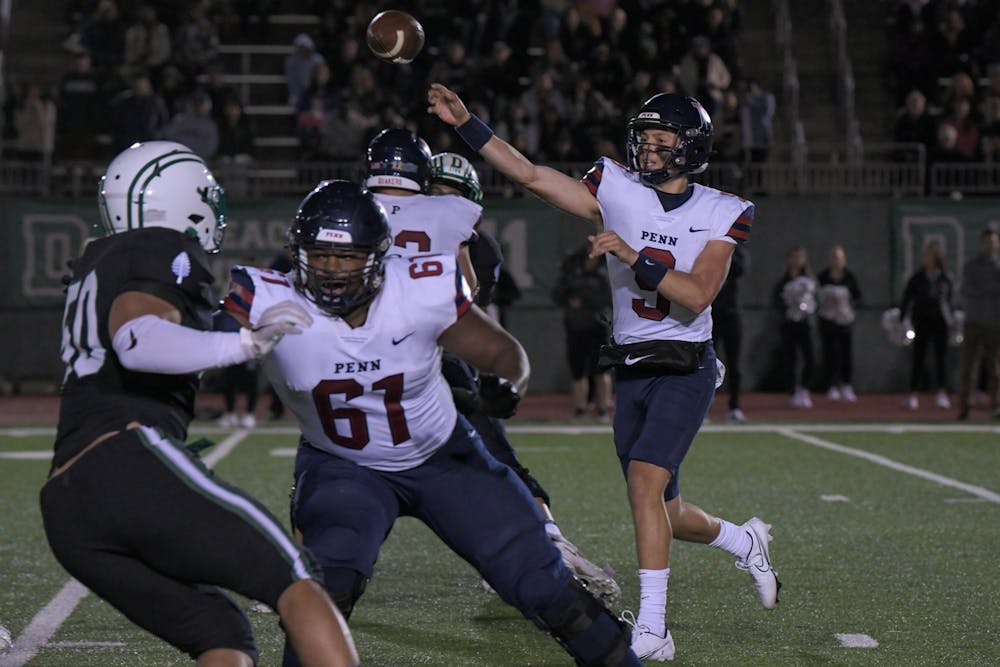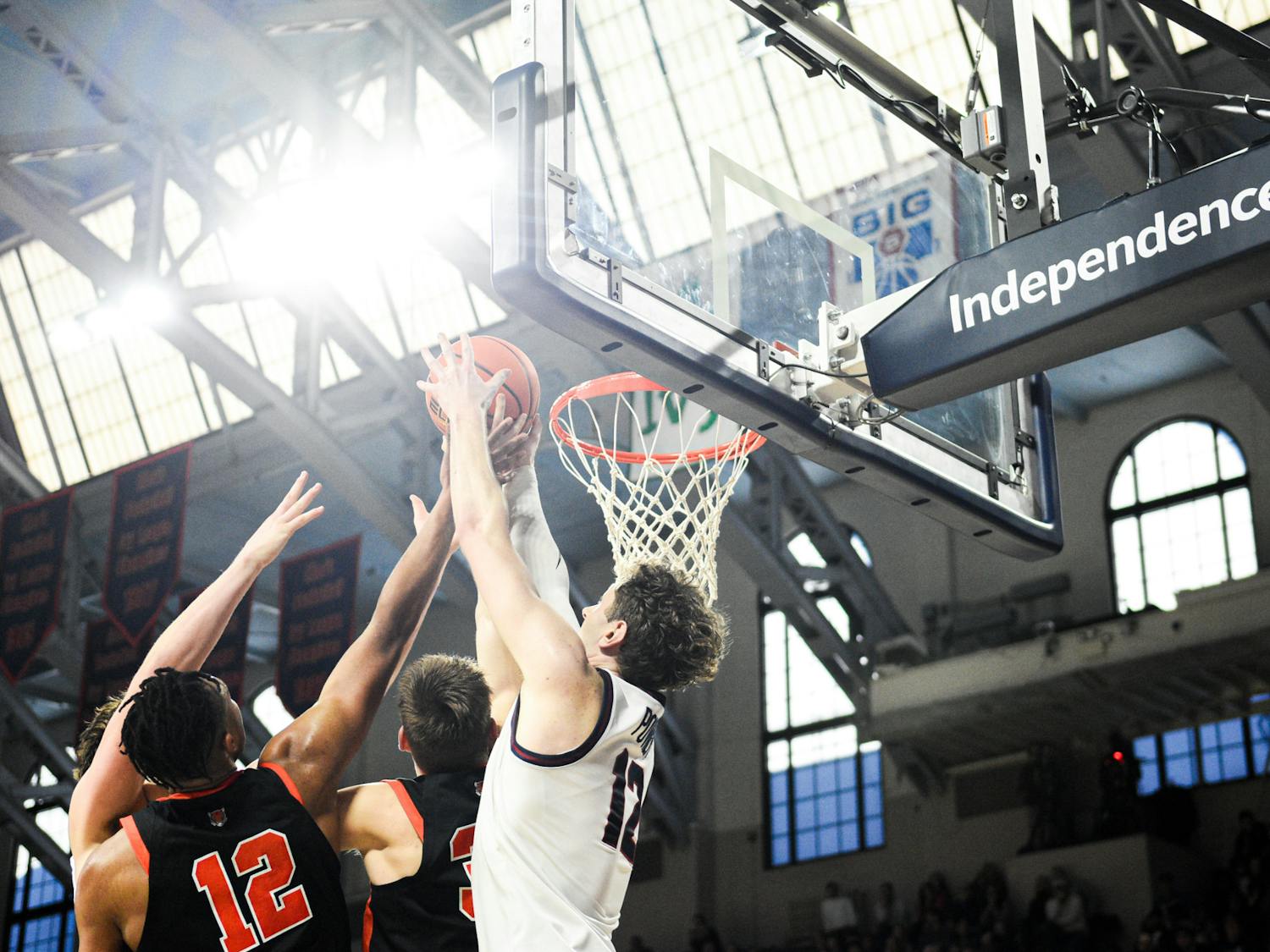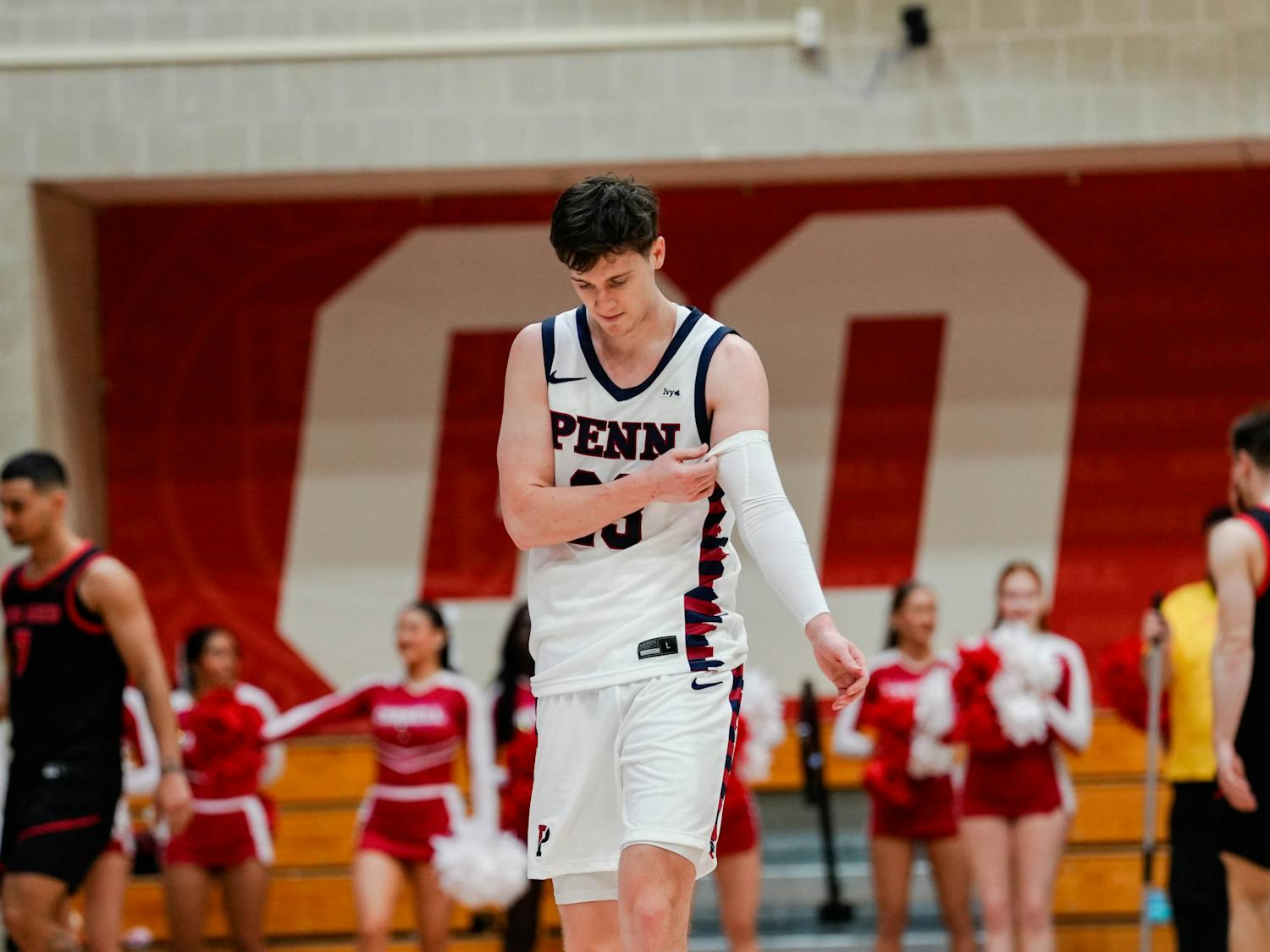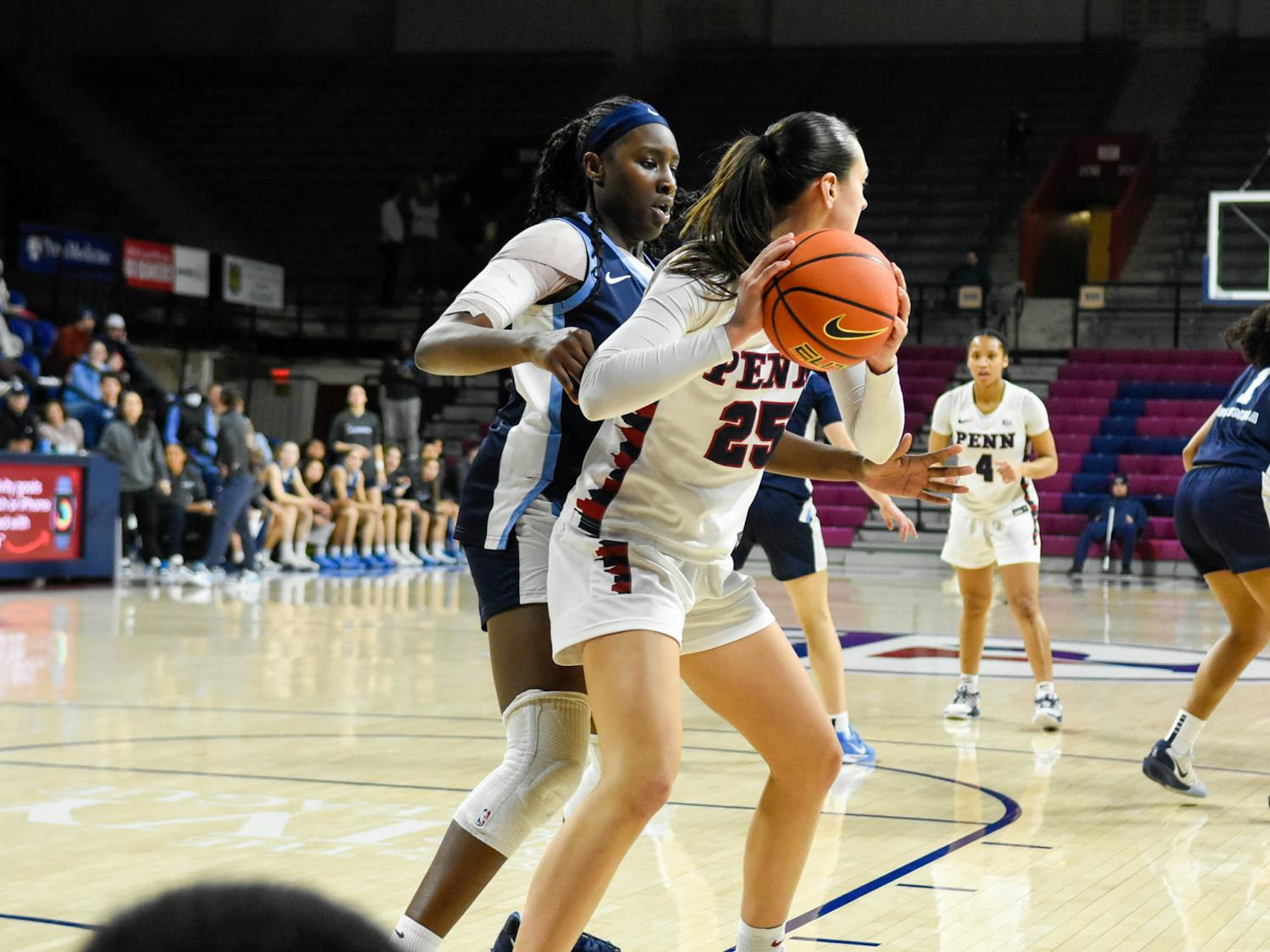HANOVER, N.H.— It might’ve been a case of déjà vu for Penn football on Friday night.
In 1982, Penn was starving for success. The Quakers hadn’t won an Ivy League title in nearly 25 years, and they just finished their previous campaign with a miserable 1-9 record. They were set to open their campaign on the road against the Dartmouth Big Green, a game that many picked the Quakers to lose to the defending co-champions. To the shock of many, however, the Quakers shut out Dartmouth 21-0 and ended up finishing that season 7-3. That opening-day win, and the team's success that season, set the Red and Blue up to win their first of 17 league titles in the past 40 seasons.
In 2022, Penn might’ve just set itself up to begin a new era of dominance in Quaker football. Though it wasn’t pretty, Penn somehow found a way to beat a Dartmouth team that had gone 27-3 over the past three seasons and was thought to be the preseason favorite for the Ivy League title.
For their night game, Dartmouth chose to wear all black uniforms. As it turned out, the Big Green would be aptly dressed for a potential funeral of their Ivy League title hopes this season, courtesy of the Quakers.
Dartmouth came into the matchup ranked second in the FCS in total offense and averaged 36.5 points per matchup. For Penn and coach Ray Priore, however, it was not how many points and yards the Big Green were putting up; it was where they were coming from. Dartmouth's offensive production came mostly on the ground, led by dual-threat quarterback Nick Howard, who ran for 243 yards and four scores coming into the game.
Luckily for Penn, it faced a similar test in Colgate dual-threat signal-caller Michael Brescia, and the plan for Howard was similar — to get ahead on the scoreboard and force him to throw the ball more while playing from behind.
On the first drive, the Quakers did exactly that, driving 75 yards down the field in 14 plays, chewing up nearly eight minutes of game clock. The running game kept the Big Green off-balance, and sophomore quarterback Aidan Sayin got in rhythm with quick and easy completions. Penn took a 7-0 lead, and other than one end-of-half drive for a field goal, Dartmouth’s offense couldn't get going after another strong performance from the Quaker defense, which so far this season has proven to be the pulse of this team.
Why Penn was held at seven points until the final seconds of regulation falls mostly on the shoulders of Priore. On their second possession, still nursing a touchdown lead, the Quakers drove down 54 yards to the Dartmouth 21 and faced a fourth-and-one. Junior kicker Graham Gotlieb looked to be hitting his attempts from 50 yards during warmups, and it would’ve been about a 35-yarder from that distance.
Priore elected to pass on the safe points, though, and chose to go for it with running back Trey Flowers, whom Dartmouth quickly tackled off the edge. The Quakers had utilized Flowers heavily on that drive, and the Big Green likely bet on Priore turning to the senior running back again in that fourth-and-one situation.
After the defense made a stand, the Quakers once again faced a fourth down, needing five yards. Sitting at the edge of Gotlieb’s range, Priore elected to go for it again. This time, it was sophomore tight end Bryce Myers who was stopped just short of the marker. The opportunity for Priore to correct his mistakes and go for the field goal attempt presented itself for the third time in Penn’s opening second-half possession. Facing a fourth-and-three at the Big Green 28, Priore inexplicably tried to go for it again. The Quakers were unsuccessful for a third time, however, as Sayin’s pass fell incomplete.
While many Quaker fans have been clamoring Priore to be more aggressive in these situations, situational awareness is important. Knowing to attempt a field goal and play the scoreboard in the second half — especially after failing twice prior on a fourth down — is just as important as choosing to go for it on fourth-and-goal from the one-yard line in the opening minutes.
While Penn was able to overcome those three turnovers on downs against Dartmouth, it will be hard to keep on doing so, especially when having to play other sound Ivy teams such as Princeton and Harvard later on.
The Quaker defense held firm for as long as it could Friday. Timely stops, check. Constantly pressuring the quarterback and preventing big runs, check. Consistently forcing negative plays from Dartmouth’s high-powered offense, check. The sole regulation touchdown Penn allowed — its first of the season — occurred after a shanked punt set Dartmouth up with just 37 yards to the end zone.
While after three games it’s fair to say that Penn has a title-caliber defense, the offense must improve in consistency to put points on the board to support them and allow them to play more comfortably.
Sayin may not have had the best night, but he showed major guts under fire during Penn’s last regulation possession. After the missed field goal, the sophomore was able to comfortably execute the Quakers’ two-minute offense, leading his team 52 yards down the field in 13 plays, highlighted by a clutch pitch-and-catch to senior wideout Malone Howley for 19 yards to put Penn in field-goal range.
Following Gotlieb's 35-yard kick, the Red and Blue received the ball first in overtime. Sayin used his legs to get within striking distance, before calmly tossing a five-yard bullet to junior wide receiver Joshua Casilli for the go-ahead score. And after the special teams unit stepped up and made a huge block on Dartmouth’s 2OT field-goal try, Sayin appeared to audible to a run play, which Flowers took 24 yards to the goal-line, to set up the game-winning score.
Though less than 10 starts into his young career, Sayin clearly seems to have already earned the respect and trust of his teammates and his head coach.
The main key to the Quakers winning this game was through the air: Sayin finished with 204 yards and a score on 25-38 passing, making several timely throws, while Howard, despite running for 108 yards and two scores, could not make key throws when it mattered the most in overtime. The Quakers defense held Howard to a measly 12-22 passing for 78 yards.
Relying heavily on the mantra “run the ball and stop the run,” Penn was able to do both effectively, rushing for 137 yards and two touchdowns on the ground, and holding Dartmouth’s FCS-leading rushing attack to just 193 yards, just about half their season average. While the Quakers were able to avoid many blown chances from achieving the victory, they will need to find a way to consistently capitalize on their scoring opportunities to win during the brunt of Ivy League play.
EASHWAR KANTEMNENI is a Deputy Sports Editor for The Daily Pennsylvanian and is a College junior from Cincinnati studying neuroscience. He can be reached at kantemneni@thedp.com.









